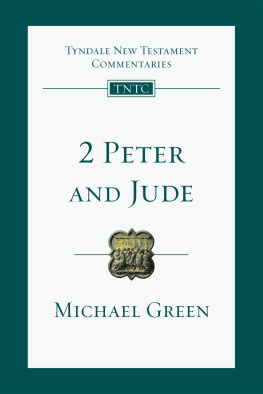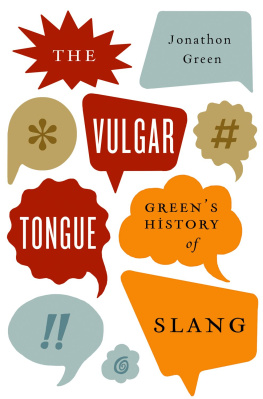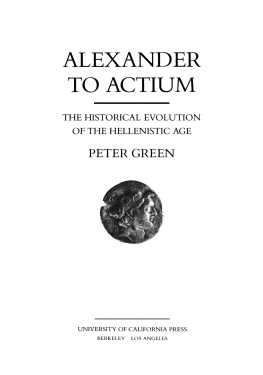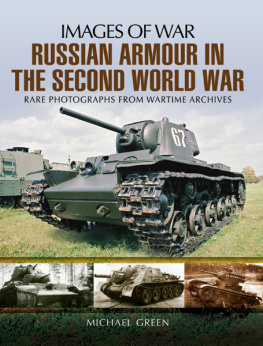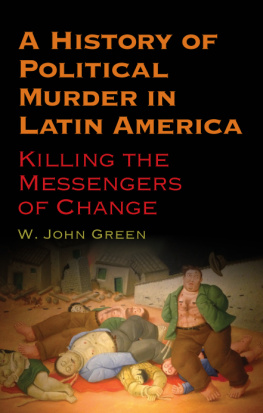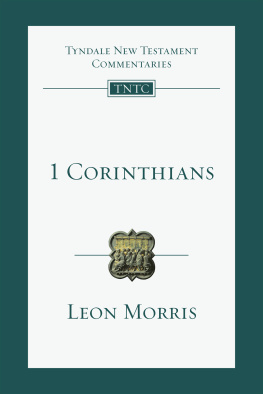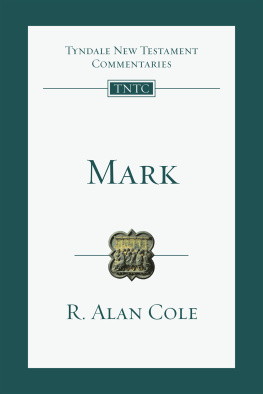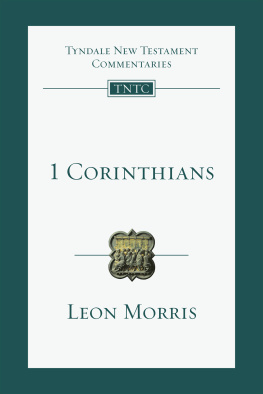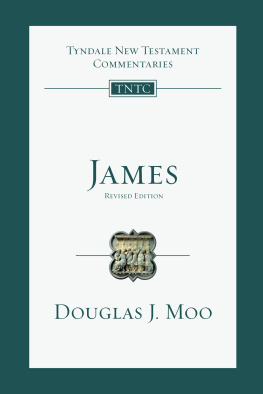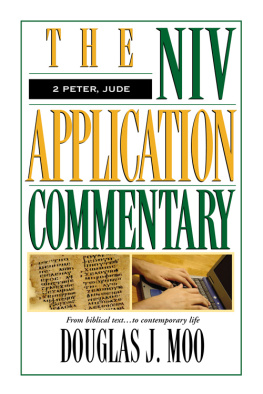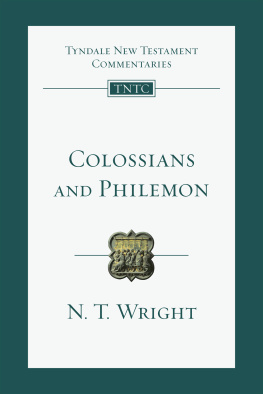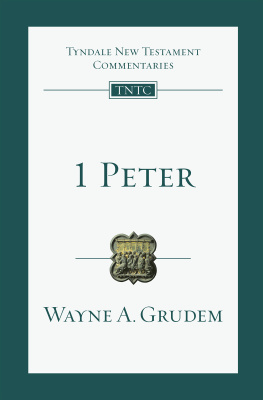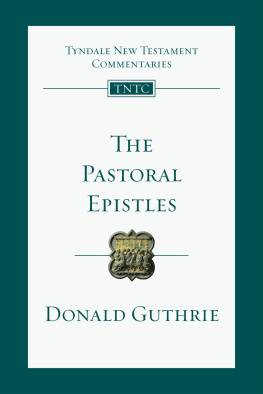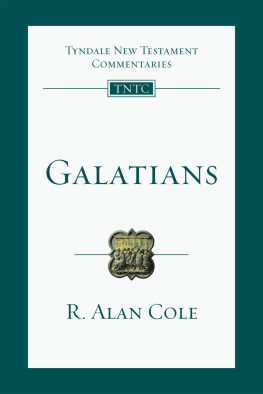TYNDALE NEW TESTAMENT
COMMENTARIES
VOLUME 18
2 PETER AND JUDE
Inter Varsity Press, USA
P.O. Box 1400
Downers Grove, IL 60515-1426, USA
World Wide Web: www.ivpress.com
Email: email@ivpress.com
Michael Green 1987
All rights reserved. No part of this publication may be reproduced, stored in a retrieval system or transmitted in any form or by any means, electronic, mechanical, photocopying, recording or otherwise, without the prior permission of Inter-Varsity Press.
InterVarsity Press, USA, is the book-publishing division of InterVarsity Christian Fellowship/USA and a member movement of the International Fellowship of Evangelical Students.
All Scripture quotations, unless otherwise indicated, are taken from the Holy Bible, New International Version. NIV. Copyright 1973, 1978, 1984 by International Bible Society. Used by permission of Hodder and Stoughton Ltd. All rights reserved. NIV is a registered trademark of International Bible Society. UK trademark number 1448790. Distributed in North America by permission of Zondervan Publishing House.
First published 1968
Second edition 1985
ISBN 978-0-8308-9389-8 (digital)
ISBN 978-0-8308-4248-3 (print)
This digital document has been produced by Nord Compo.
TYNDALE NEW TESTAMENT
COMMENTARIES
VOLUME 18
GENERAL EDITOR: LEON MORRIS
2 PETER AND JUDE
AN INTRODUCTION AND COMMENTARY
MICHAEL GREEN
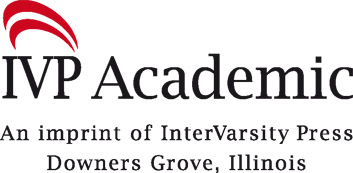
General preface
The original Tyndale Commentaries aimed at providing help for the general reader of the Bible. They concentrated on the meaning of the text without going into scholarly technicalities. They sought to avoid the extremes of being unduly technical or unhelpfully brief . Most who have used the books agree that there has been a fair measure of success in reaching that aim.
Times, however, change. A series that has served so well for so long is perhaps not quite as relevant as when it was first launched. New knowledge has come to light. The discussion of critical questions has moved on. Bible-reading habits have changed. When the original series was commenced it could be presumed that most readers used the Authorized Version and one could make ones comments accordingly, but this situation no longer obtains.
The decision to revise and update the whole series was not reached lightly, but in the end it was thought that this is what is required in the present situation. There are new needs, and they will be better served by new books or by a thorough updating of the old books. The aims of the original series remain. The new commentaries are neither minuscule nor unduly long. They are exegetical rather than homiletic. They do not discuss all the critical questions, but none is written without an awareness of the problems that engage the attention of New Testament scholars. Where it is felt that formal consideration should be given to such questions, they are discussed in the Introduction and sometimes in Additional notes.
But the main thrust of these commentaries is not critical. These books are written to help the non-technical reader to understand his Bible better. They do not presume a knowledge of Greek, and all Greek words discussed are transliterated; but the authors have the Greek text before them and their comments are made on the basis of the originals. The authors are free to choose their own modern translation, but are asked to bear in mind the variety of translations in current use.
The new series of Tyndale Commentaries goes forth, as the former series did, in the hope that God will graciously use these books to help the general reader to understand as fully and clearly as possible the meaning of the New Testament.
Leon Morris
Authors preface to the first edition
2 Peter and Jude are a very obscure corner of the New Testament. They are hardly ever preached upon; commentaries and articles in learned journals rarely deal with them. There are not wanting voices, such as those of Professors Ksemann and Aland, urging their deletion from the Canon. The question may well be asked, have they any relevance for today?
The commentary that follows is written in the conviction that these two Epistles carry a very important message for our times. We live in days when the contents of the Christian faith are widely questioned, when new and speculative theologies are widely disseminated, and when a new morality is being advocated which is capable of being misunderstood as the old immorality writ large. Christianity is presented to us in terms of love, with the content of the faith and the hope for the future both strangely muted in deference to the contemporary intellectual climate. There is, moreover, an intellectualism about much of our Christianity which is not, perhaps, so far removed from that attacked in these letters the knowledge that has little relation to holy living, growing spirituality and deepening love. We can hardly maintain that 2 Peter and Jude, written as they were to meet problems very like our own, have nothing to teach us. So long as sin needs to be exposed, so long as man needs to be reminded that persistent wrongdoing ends in ruin, that lust is self-defeating, that intellectualism devoid of love is a barren thing, and that Christian theology has no right to outrun the faith once delivered to the saints, these Epistles will remain uncomfortably, burningly relevant.
This commentary sprang out of my Tyndale Monograph, 2 Peter Reconsidered, from which its introductory matter should be supplemented, since lack of space has prevented me from dealing as fully as I would have liked with textual problems. I would like to express my gratitude to Professor C. F. D. Moule who first interested me in this part of the New Testament by inviting me to read a paper on 2 Peter to his Cambridge New Testament Seminar; to Professor R. V. G. Tasker, the former General Editor of the series, and Dr I. H. Marshall of Aberdeen University, both of whom read the manuscript in its first draft and made many helpful suggestions.
E. M. B. Green
Authors preface to the second edition
This Commentary, first published in 1968, and based on the AV, is here reissued, based on the text of the New International Version of the Bible. While adhering to the broad positions adopted in the first edition, I have taken the opportunity afforded by this revision to make a thorough reappraisal of the text of the Epistles and the commentary in the light of modern writing. There is a resurgence of interest in this long-neglected corner of the New Testatment, and a willingness to consider fresh possibilities. Many of the commentaries on 2 Peter and Jude which emerged since 1968, such as those of Sidebottom, Kelly and Fuller, have added little to the discussion and have disappointed. But Spicq, Fornberg, Neyrey, and J. A. T. Robinson have done much to break new ground and I wish to express my indebtedness to them.
As will be apparent from the following pages, my biggest debt is to Dr R. J. Bauckham, who has not only written the fullest and incomparably the best commentary on 2 Peter and Jude to appear in English, but has made available to me a detailed supplementary bibliography on these letters, an account of recent research, and a great deal of personal interest and help to one who has exchanged academic life for the parish. Dr Carsten Thiede has been particularly helpful as I have set out to revise the commentary. My thanks are also due to Dr Leon Morris, the present General Editor, for his careful comments on the manuscript of the revised edition, and to Dr David Stone who did a superb job on the proofs.

